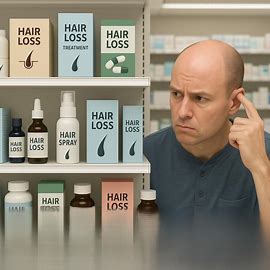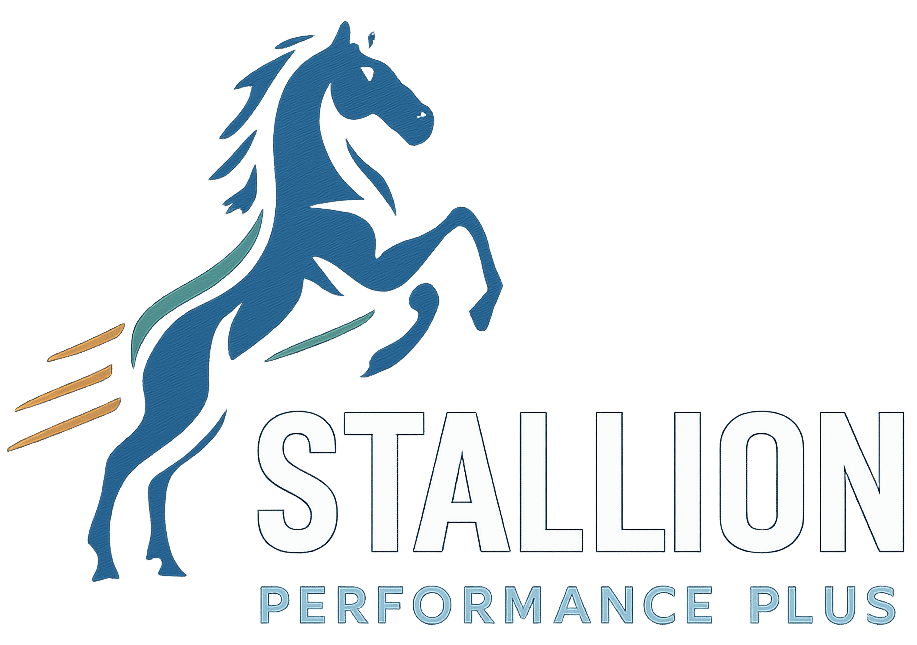(They Say Every Man Deals with Hair Loss)
Hair loss is something many folks will face at some point, but how it happens and why isn’t as well-known. Let’s talk about the basics of this process, starting with how hair grows. The hair growth cycle consists of three phases: anagen (growth), catagen (transition), and telogen (rest). Every strand on your head is in one of these stages. It’s all a bit like farming, with growth, harvest, and rest periods for the hair follicles.
Genetics play a huge role in balding. If your parents or grandparents dealt with it, you might too. That’s not to say it’s unavoidable, but rather it’s something to be aware of. Scientists have identified several genes that contribute to male pattern baldness and other types of hair loss, meaning your family tree might hold some clues to your future hairline.

Age naturally comes into play as well. As you grow older, your hair follicles might shrink, leading to finer hair and, eventually, hair shedding. This is why you might notice your hair isn’t as luscious as it used to be. Hormonal changes are also big players in the hair loss game, with conditions like thyroid disorders or hormonal imbalances turning hair loss into a reality for many.
Understanding these factors helps in identifying why you’re losing hair and how best to address it. It’s essential to get the facts straight before jumping to conclusions or falling for every product claiming to be a miracle cure. That ensures you’re taking the right steps in tackling the issue effectively.
Myth vs. Fact: Hair Loss Isn’t Caused by Shampoo or Hats
The idea that shampooing too often leads to hair loss is pure fiction. Shampoo helps keep the scalp clean and free from excess oils. Sure, if you’re scrubbing like you’re trying to clean a stubborn pot, you might cause breakage, but that’s not outright loss. The key is to be gentle and choose a shampoo suited to your hair type.
Then there’s the hat myth. Wearing hats won’t make you bald. Hats can actually protect your scalp from the sun, which is a win for skin health. In reality, continuously pulling a hat off harshly might tug at hairs, but it’s not going to lead to large-scale hair shedding.
So what really affects hair strength and longevity? Genetics, hormones, age, and certain health conditions. Surprisingly, external factors such as these myths don’t play the significant roles some think they do.

What do the experts say? Dermatologists agree that while hair products and accessories can cause temporary cosmetic issues, they won’t cause hair to fall out permanently. Looking for advice? Find a hair care routine that’s tailored for you by consulting a professional.
Stress and Hair Loss: Separating Reality from Rumor
Stress is often blamed for a multitude of woes, including hair loss, but what’s really going on here? Intense stress can lead to a condition known as telogen effluvium, where hair enters the resting phase too early. This might result in noticeable shedding over a period of time, but it’s typically temporary.
The relationship between stress and hair loss isn’t just a one-way street. It turns out that stress can trigger and worsen conditions such as alopecia areata, which causes patches of hair to fall out. But before you fret about losing your locks, it’s worth noting: not every stressful event will result in hair loss.
Managing stress effectively can play a critical role in preventing stress-related hair loss. Techniques such as yoga, meditation, and even regular exercise can make a big difference in maintaining both mental peace and hair integrity.
Understanding the science of stress and its impact on hair can be empowering. Instead of worrying about every stressful event leading to hair clips full of lost strands, it helps to focus on stress management and relaxation as tools for keeping your hair healthy.

For those noticing changes in their hair, consulting with healthcare professionals to get ahead of potential issues can make all the difference. After all, expert advice and support can boost both your spirits and your hairline.
Diet, Nutrition, and Hair Loss: What Matters
Feeding your body the right nutrients is crucial for healthy hair. Nutritional deficiencies can lead to hair loss, so keeping a balanced diet is more important than quick fixes or trendy supplements. We’re not just what we eat; our hair is too.
Protein is a big deal for your strands. Hair is mostly keratin, a type of protein, so skimping on this macronutrient might lead to weaker locks. Ensuring adequate daily protein intake can support new hair growth and strength.
Vitamins and minerals are also key players. Iron deficiency, for example, is a well-known cause of hair loss, particularly among women. Iron-rich foods like spinach and lentils can be your hair’s best friend. Vitamin D, zinc, and biotin are also important for keeping hair in top shape.
While supplements marketed for hair growth flood the market, they aren’t always necessary for everyone. They can be helpful if you have a specific deficiency, but popping a pill isn’t a substitute for a balanced diet.
Let’s bust the myth around ‘superfoods’ that claim to magically reverse hair loss. No single food can turn the tide on baldness overnight. A varied diet full of fruits, vegetables, whole grains, and lean proteins will do far more for your hair over time than any single ‘miracle’ food. Balance and moderation are the keys, along with consulting healthcare providers for personalized nutrition advice.
Embracing Hair Loss: Modern Solutions and Acceptance
Some folks rush to treatments the moment they see strands circling the drain, yet not all solutions are created equal. A slew of medical treatments like Minoxidil and Finasteride offer proven results for many, albeit with varied effectiveness and side effects. These topical and oral treatments can slow balding or even encourage new growth.
For those considering surgical routes, hair transplants are an option that folks often explore. Though costly, they’re pretty effective in creating a fuller look if meticulousness and graft quality are part of the procedure. Consulting with a skilled surgeon is a must to get satisfactory results and understand what to realistically expect.

Beyond physical treatments, there’s the mental side to consider. Hair loss can hit self-confidence hard. It’s crucial to remember that balding is a common experience and doesn’t diminish one’s worth. Resources like therapy or counseling can help in boosting emotional resilience and self-esteem.
Embracing hair loss is another path. Going au naturel and owning your unique look can be liberating. Societal norms around beauty and appearance are changing, and many find empowerment in embracing hair loss. There are communities and networks out there offering support where you can share experiences and inspiration.
Whether choosing a medical intervention, going for a confident bald look, or finding a hybrid path, the important part is feeling good about your choice. With the right resources and mindset, dealing with hair loss is not just about reclaiming lost strands, but also about embracing who you are in every part of your journey.
Here’s a little transparency: Our website contains affiliate links. This means if you click and make a purchase, we may receive a small commission. Don’t worry, there’s no extra cost to you. It’s a simple way you can support our mission to bring you quality content.”
Comments Below

Byron, this piece hit home for me in more ways than I expected. I’ve actually been losing hair myself lately, and to be honest, I have no idea what’s going on. Reading your article helped me breathe a little—it reminded me that not every strand that falls out means disaster. I’ve caught myself worrying over things like shampoo choice or wearing hats too often, so seeing those myths debunked felt like a personal relief.
Your explanation about stress and nutrition made me pause. I’ve been under a lot of pressure lately, skipping meals and sleep, and maybe that’s part of the problem. It’s comforting to know that sometimes, the body just needs care, not panic. You’ve turned what could feel like a shameful topic into an honest conversation that invites understanding instead of fear.
I do wonder though—how long should someone wait before seeing a specialist if they’re noticing hair loss but aren’t sure of the cause? I’m realizing it might be time for me to stop guessing and actually get checked. Thanks for writing something that mixes science with empathy—it made me feel seen and a little less alone.
John
John, I appreciate your kind words. I’m glad you find the information informative. As for when you should see a Doctor, I’d say, the moment you thought he might have answers to your concerns. Stay optimistic as it can make a difference.
John, I appreciate your kind words. I’m glad you find the information informative. As for when you should see a Doctor, I’d say, the moment you thought he might have answers to your concerns. Stay optimistic as it can make a difference.
Fantastic read! I really appreciate how you broke down the myths and focused on the science behind hair loss. My dad was actually bald by the time he was 20, so I’ve always been curious about what’s truly genetic versus what lifestyle choices can influence. It’s refreshing to see a balanced explanation that debunks all the old hat and shampoo rumors. I especially liked the section on stress — it’s amazing how much our mental state can affect our hair and overall health. Do you think genetics still outweigh things like diet and stress management when it comes to long-term hair health?
Jenny, I appreciate your feedback, it is amazing how so many things affect our health both internally and externally. IMO, I think Genetics plays a very important role in Hair Loss. When you see a young man like your Dad lose their hair in their 20’s it’s hard to imagine that anything other than Genetics is at fault. At that point in his life, he really hasn’t had the wear and tear of living affect him unless he’s had a very hard childhood.
Hair Loss is caused by so many factors, and I believe in many cases it’s an accumulation of multiple catalysts that ultimately lead to Hair Loss.